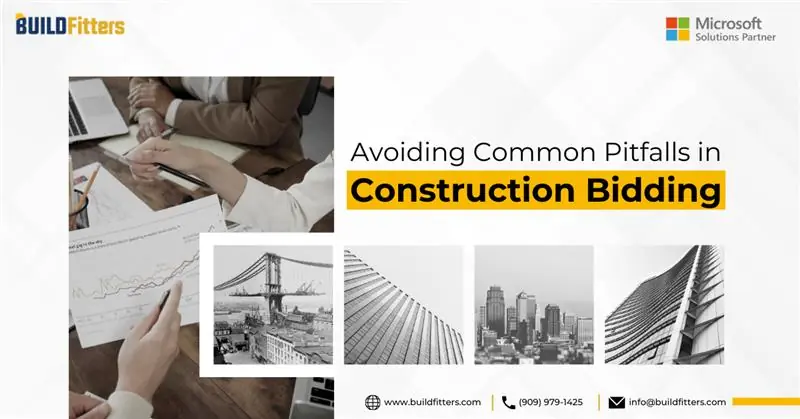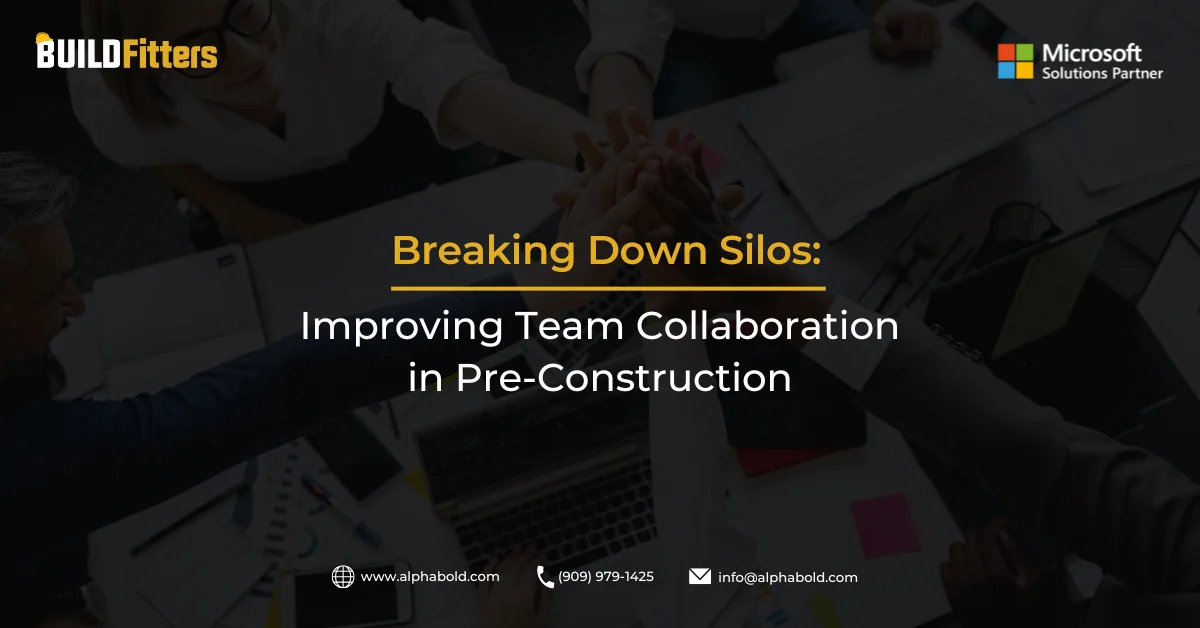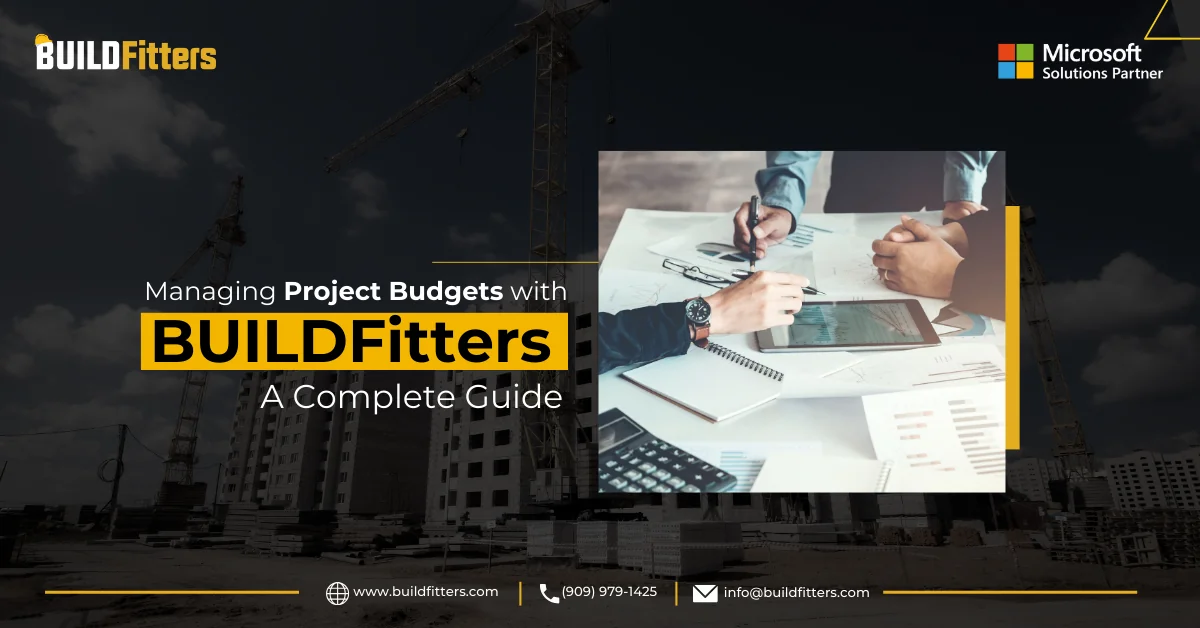
Avoiding Common Pitfalls in Construction Bidding
Introduction
Are you investing substantial amounts in bids but receiving no responses? What might you be doing incorrectly? It’s not always about updating your bidding strategy. Sometimes, taking precautionary measures can make all the difference in preventing your bids from failing. The construction industry is a highly saturated market, where every step requires careful thought before submitting a bid for any project. Common mistakes in construction bidding can lead to significant financial losses.
This blog highlights practical construction bidding practices, such as crafting accurate cost estimates, understanding project requirements, and improving stakeholder communication. Whether you’re a general contractor bidding on large-scale commercial projects or a subcontractor seeking consistent opportunities, these strategies will help you refine your approach and improve your success rate.
Common Pitfalls in Construction Bidding
Many AEC professionals in the bidding phase assume they have mastered construction bidding best practices. However, this overconfidence often leaves them vulnerable to common pitfalls, such as inaccurate cost estimates and bidding on unsuitable projects, which can significantly hinder success.
In this section, we will explore some of these common pitfalls so that you can identify and address them effectively, ensuring your bidding strategy aligns with true construction bidding best practices for better outcomes.
1. Wrong Project Cost Estimates:
Underestimating project costs is one of the most common reasons bids fail. This mistake can drain your finances and resources, lead to missed deadlines, and negatively impact customer relationships and credibility.
Conducting a thorough internal review is essential to avoid this costly error. Before submitting a bid, consider all potential expenses, including permits, insurance, and equipment rentals. Additionally, allocate a contingency budget for unexpected costs.
By dedicating time to comprehensive analysis and preparation, you can ensure the accuracy of your bids, minimize potential delays or setbacks, and strengthen your reputation in the industry.
Further Reading: How BUILDFitters Simplifies Pre-Construction with Construction Estimation Software
2. Choosing The Wrong Projects for Bidding:
Sometimes, it’s not the low value you’re proposing that’s the issue—it’s the project you’re bidding on. Not all projects align with your expertise or available resources. Pursuing unsuitable projects can overextend your team, compromise quality, and result in significant financial losses.
That’s why it’s essential to carefully evaluate each project before submitting a bid.
- Is the project worth your time and investment?
- Does it involve a profitable or high-value client?
Focus on bidding for projects that fall within your area of expertise. This approach ensures quality workmanship, optimal resource utilization, and the ability to meet or exceed your client’s expectations.
Streamline Your Construction Bidding with BUILDFitters
BUILDFitters helps you avoid common bidding pitfalls with tools that enhance accuracy and efficiency.
Request a Demo3. Ambiguous Bids:
Understanding your client’s budget constraints is just as crucial as understanding your client. One common mistake in bidding is setting your price either too high or too low. Excessively high bids can deter potential clients, while overly low bids may create the perception that your services lack value.
Instead, focus on providing a transparent, detailed bid. Outline every expense, timeline, and deliverable to offer complete clarity. Aim for a balanced proposal that shows precisely how the client’s money will be allocated at each step.
This approach reduces the chances of disputes, misunderstandings, and project withdrawals, boosting trust and stronger client relationships.
Further Reading: Managing Project Budgets with BUILDFitters: A Complete Guide
4. Ignoring Site Conditions:
Creating a project or bidding plan without conducting a thorough site inspection increases the risk of unexpected expenses. Complex landscapes may present challenges such as limited access or restricted infrastructure.
Failing to account for these factors and neglecting to allocate a contingency budget can lead clients to perceive that you’re either demanding additional costs or concealing expenses. These perceptions can damage trust and credibility, while unanticipated complications may significantly impact project costs and timelines.
Construction bidding best practices involve conducting a detailed site inspection before bidding. This approach ensures you can accurately plan and budget, reducing risks and fostering stronger client relationships.
5. Failing to Weigh Risk Factors:
Focusing solely on the potential benefits and advantages is common when bidding on a construction project. But what about the risks? Evaluating both perspectives is crucial when deciding how to invest your time and resources in a construction bid.
Overlooking risk factors during the bidding process can be a costly mistake. Instead, take a systematic approach: explore all available options, carefully weigh the pros and cons, and identify any potential risks. Once you have thoroughly analyzed these factors, you will be better equipped to decide whether to proceed with the bid.
A well-rounded evaluation ensures you are prepared for challenges and increases the likelihood of a successful outcome.
6. Lack of Technology Utilization:
There is no industry untouched by the transformative power of technology, and the construction sector is no exception. Construction businesses can maximize efficiency and productivity with comprehensive solutions like BUILDFitters.
BUILDFitters is a one-stop platform for automating and streamlining your end-to-end construction processes. From project management and sales to inventory tracking and on-field operations, BUILDFitters simplifies every aspect of your business.
This technology goes beyond operational efficiency; it embodies construction bidding best practices. With BUILDFitters, you can seamlessly manage sales, inventory, internal operations, and potential opportunities while accessing real-time analytics to evaluate and enhance your performance.
Check More Details: BUILDFitters Brochure
Optimize Your Construction Operations Today
Sign up and transform how you manage construction operations.
Request a DemoConclusion
Even the smallest mistakes can derail a well-prepared construction bid, wasting time, resources, and missed opportunities. By adopting construction bidding best practices, you can avoid these common pitfalls and position your business for long-term success. Tools like BUILDFitters streamline the bidding process and empower you with the accuracy and insights needed to secure profitable projects.
Take the first step toward transforming your bidding strategy—request a demo of BUILDFitters today to see how our solutions can enhance your construction operations and drive better results.




